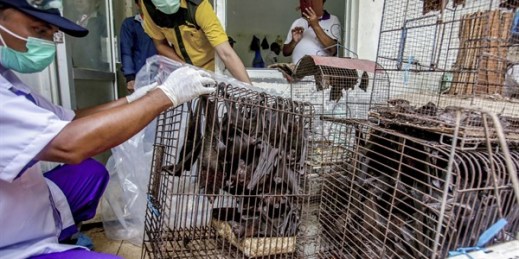
The growing prevalence of zoonotic diseases, underscored by the COVID-19 pandemic, and the ongoing loss of biodiversity around the world make tackling the illicit trade in wild animals imperative, since it threatens global public health and the extinction of endangered species. Fortunately, a practical approach is there for the taking. The Global Initiative to End Wildlife Crime has launched a campaign to fill gaping holes in two international treaties: the Convention on International Trade in Endangered Species of Wild Fauna and Flora, known as CITES, and the U.N. Convention Against Transnational Organized Crime, or UNTOC. The new Biden administration should […]

